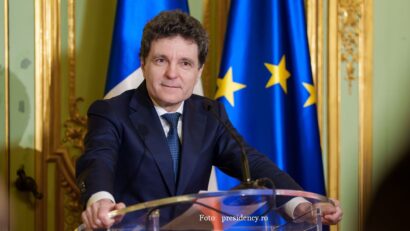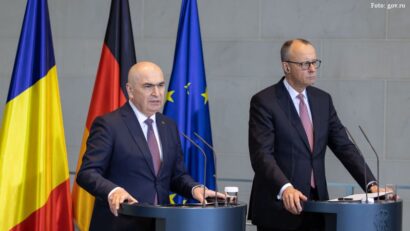Remember Timisoara
On December 18, 1989 in Timisoara, the largest city of Banat region, in the west of Romania, the Communist regime’s forces of repression opened fire on the young protesters who had gathered on the steps of the city’s Orthodox cathedral. Also 30 years ago, the bodies of 43 revolutionaries were stolen from the morgue of the County Hospital by officers of the Securitate, the regime’s political police, and taken to the Bucharest crematorium, in a move to erase all traces of the murders committed in Timisoara.

Bogdan Matei, 18.12.2019, 13:15
On December 18, 1989 in Timisoara, the largest city of Banat region, in the west of Romania, the Communist regime’s forces of repression opened fire on the young protesters who had gathered on the steps of the city’s Orthodox cathedral. Also 30 years ago, the bodies of 43 revolutionaries were stolen from the morgue of the County Hospital by officers of the Securitate, the regime’s political police, and taken to the Bucharest crematorium, in a move to erase all traces of the murders committed in Timisoara.
Looking back at December 1989, many commentators said that it was not by chance that the end of the Communist dictatorship started in the very city of Timisoara. Timisoara was located near the free world, so to say. Television antennas had captured for many years the broadcasts aired by the TV channels from Tito’s Yugoslavia, which for Romanians were incredibly relaxed, or those aired by the Hungarian television. The historical context made the people of Banat area, even when the region was under the rule of the Habsburg Empire, develop a civic attitude and a trans-ethnic solidarity which had not been seen in other provinces.
The few people who had shown solidarity with the Hungarian pastor Laszlo Tokes, whom the Communist authorities wanted to deport from Timisoara, was the spark of the citizens’ revolt. The list of the people killed in December 1989 includes Romanian, Hungarian, German and Serbian names. In an outbreak of what commentators called cynicism and madness, dictator Nicolae Ceausescu went on a visit to Iran on those very days, Iran being one of the last places in the world where a criminal despot could still be welcomed as a head of state.
On December 20, when the rest of Romania was still a Socialist republic and did not dare think that it could become something else, Timisoara was already free of Communism. It had been freed by the first Romanians who, after decades of humiliation, hunger and cold, overcame their fear. They were the relatives and friends of those killed on the steps of the Cathedral. The soldiers refused to continue shooting the people and withdrew to their barracks.
The first officer who fraternized with the revolutionaries, Viorel Oancea, became, two years later, the mayor of Timisoara, after he winning the post-Communist local elections. On December 21, 1989 the uprising in Timisoara extended to other big cities of Romania, in the west and center, such as Arad, Cluj, Sibiu and Brasov, where the police opened fire on the people. Also on December 21 Ceausescu ordered a rally which he wanted to be supportive of his regime, but the rally turned into a manifestation of overt disdain for his dictatorship. A rally which he again tried to repress.
The second day, under the pressure of hundreds of thousands of protesters, the Ceausescus fled in a helicopter. They were captured and tried superficially and then shot dead on December 25, in a barracks in Targoviste (in the south). Romania was the only country in Central and Eastern Europe where the toppling of the Communist regime was actually a bloodbath and Timisoara was the first martyr city of those days. (translation by L. Simion)






























